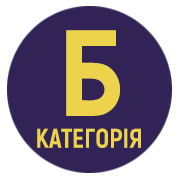ЕXTRACURRICUL ACTIVITIES IN BIOLOGY – A PATH TO DEVELOPING STUDENTS’ COGNITIVE INTERESTS
DOI:
https://doi.org/10.32782/ped-uzhnu/2025-9-6Keywords:
advanced work, cognitive interest, forms, methods, principles, techniques, development, activity, dedication, resultAbstract
The article examines the key aspects of the method that promotes the activation of cognitive activity of students in biology lessons through participation in class visits. The emphasis is placed on the importance of advanced work as an effective tool for the development of natural science, which has a positive impact on the academic achievements of students. The article aims to analyze daily approaches before organizing class-by-class activities, such as excursions, science competitions, projects, interactive activities, seminars, lectures, interest clubs, volunteer projects, quests, webinars, games, etc. In this work, an analysis was carried out to track numerous scientists who studied the organization of class-byclass work in the lighting process. The various forms and principles of class-by-class activity are examined. Studying biology in an informal context allows students to better understand the connections between theoretical knowledge and practical concepts, which are especially important in the current initial process. An important role is given to the teacher as a facilitator of cognitive activity, emphasizing the need for a friendly initial environment who wants to follow up and learn independently. The article provides practical recommendations for planning and implementing class-by-class approaches, which may include the use of current technologies, interactive learning methods and interdisciplinary connections. Effective organization of class-by-grade work in biology not only promotes the development of students’ cognitive interests, but also forms scientific literacy, critical thinking and readiness for further learning. Afterschool activities promote the development of academic creative activity, the implementation of patriotic, aesthetic, ethical, environmental, academic development of students, as well as career guidance work. This, in turn, ensures the preparation of students before the demands of the current world and promotes their special development.
References
Богданова О. К. Сучасні форми і методи викладання біології в школі. Х. : Основа, 2003. 80 с.
Грицай Н. Б. Позакласна робота з біології. Біологія і хімія в школі. 2005. № 6. С. 28–31.
Мороз І. В., Грицай Н. Б. Позакласна робота з біології : навч. посіб. Тернопіль, Навчальна книга. Богдан, 2008. 272 с.
Олійник І. В., Кучер Л. Є. Позакласна робота з біології та хімії : посібник для вчителя. Тернопіль : Навчальна книга. Богдан, 2005. 72 с.
Позакласні заходи з біології. Укладач К. М. Задорожний. Х. : Основа, 2004. Вип. № 1. 128 с.
Сметаніна Т. М. Активізація пізнавальної діяльності учнів на заняттях з біології. Біологія. 2004. № 25 (73). С. 12–15.
Трегуб В. Ю., Задорожний К. М. Рольові ігри на уроках біології та в позакласній роботі. Х. : Основа, 2005. 96 с.
Фруктова Я. С. Сучасні форми позакласної роботи з учнями. Біологія і хімія в школі. 2007. № 1. С. 29–31.
Хрестоматія з методики навчання біології. Упоряд. О. А. Цуруль. К.: НПУ імені М. П. Драгоманова, 2007. 298 с.








